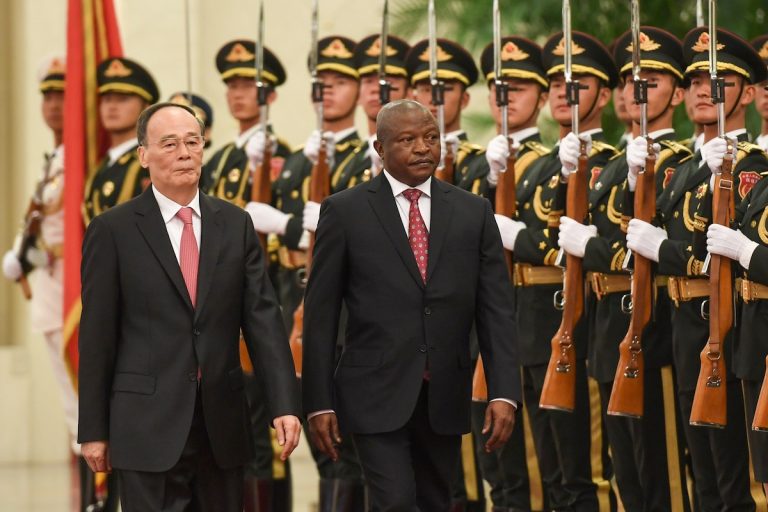General Stephen Townsend, Chief of the U.S. Africa Command (AFRICOM), recently warned that Beijing is attempting to set up an Atlantic naval base on the western coast of Africa that will service its aircraft carriers and submarines. The Chinese Communist Party (CCP) has reportedly contacted several African countries already.
If successful, the Chinese navy will have a military presence in the Pacific and Atlantic oceans, posing a significant threat to American and allied interests. Townsend’s warnings agree with the Defense Department’s recent shift in focus from terrorist activities to bigger threats from Russia and China.
“They’re looking for a place where they can rearm and repair warships. That becomes militarily useful in conflict. They’re a long way toward establishing that in Djibouti. Now they’re casting their gaze to the Atlantic coast and wanting to get such a base there.” Townsend told AP News.
“The Chinese are outmaneuvering the U.S. in select countries in Africa… Port projects, economic endeavors, infrastructure, and their agreements and contracts will lead to greater access in the future. They are hedging their bets and making big bets on Africa,” he continued.
Africa’s economic and strategic assets
Many experts believe that China will soon be establishing a naval base in Tanzania, an African nation that has strong military ties with Beijing. However, Townsend is not concerned because Tanzania is located on the eastern coast of the continent. A base on the Northern Atlantic coast of Africa would be substantially closer to the continental U.S.
Success
You are now signed up for our newsletter
Success
Check your email to complete sign up
Henry Tugendhat, a senior policy analyst with the United States Institute of Peace, believes that Beijing’s interest in Africa is largely due to economic interests. The African west coast is rich with resources such as oil and fisheries, and China has already funded the construction of a commercial port in Cameroon, which lies on the west coast. Some U.S. officials say the CCP is eyeing a nearby port in the Gulf of Guinea.
In a 2020 report on China’s military prowess, the U.S. Department of Defense (DoD) warned about the communist regime’s growing presence in Africa. “Beyond its current base in Djibouti, the PRC [People’s Republic of China] is very likely already considering and planning for additional overseas military logistics facilities to support naval, air, and ground forces,” the DoD wrote.
“A global PLA [People’s Liberation Army] military logistics network could interfere with U.S. military operations and provide flexibility to support offensive operations against the United States,” the report continued. Prime African locations for PLA military facilties include Tanzania, Kenya, and Angola. Sharing Tugendhat’s views, the report stressed that Africa’s natural resources, specifically oil and natural gas, make it a high-priority region for Beijing.
China’s military presence in Africa
China already has a military base in Africa in the northeastern nation of Djibouti. First opened in 2017, the base houses 400 Chinese soldiers and is situated just a few kilometers from an American military base with 4,000 U.S. troops. Djibouti is also home to a French military base.
China has been actively funneling money into the country, reportedly owning almost 70 percent of the nation’s debt. Djibouti elites have welcomed Chinese investments in hopes of turning the country into the ”Singapore of Africa.” With its unique geographical location, the country is well-positioned to become an economic hub. However, critics are wary of the Chinese investments, which may disproportionately benefit Chinese firms over local businesses.
In addition, at a recent U.S. Senate hearing about worldwide threats to America, Defense Intelligence Agency Director Army Lt. Gen. Scott Berrier warned about the threat of CCP military bases in Africa. “I believe the Chinese, in order to safeguard their Belt [and] Road Initiative, will place military forces where they see they need that kind of capability,” he said at the hearing.
“Africa is certainly one of those places where they have done that. The interesting thing about the way they look at Africa is sort of this long-term developmental approach, which will allow them over a long period to put more forces there,” he continued.
With reporting by Prakash Gogoi.














